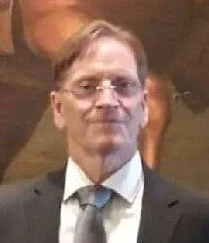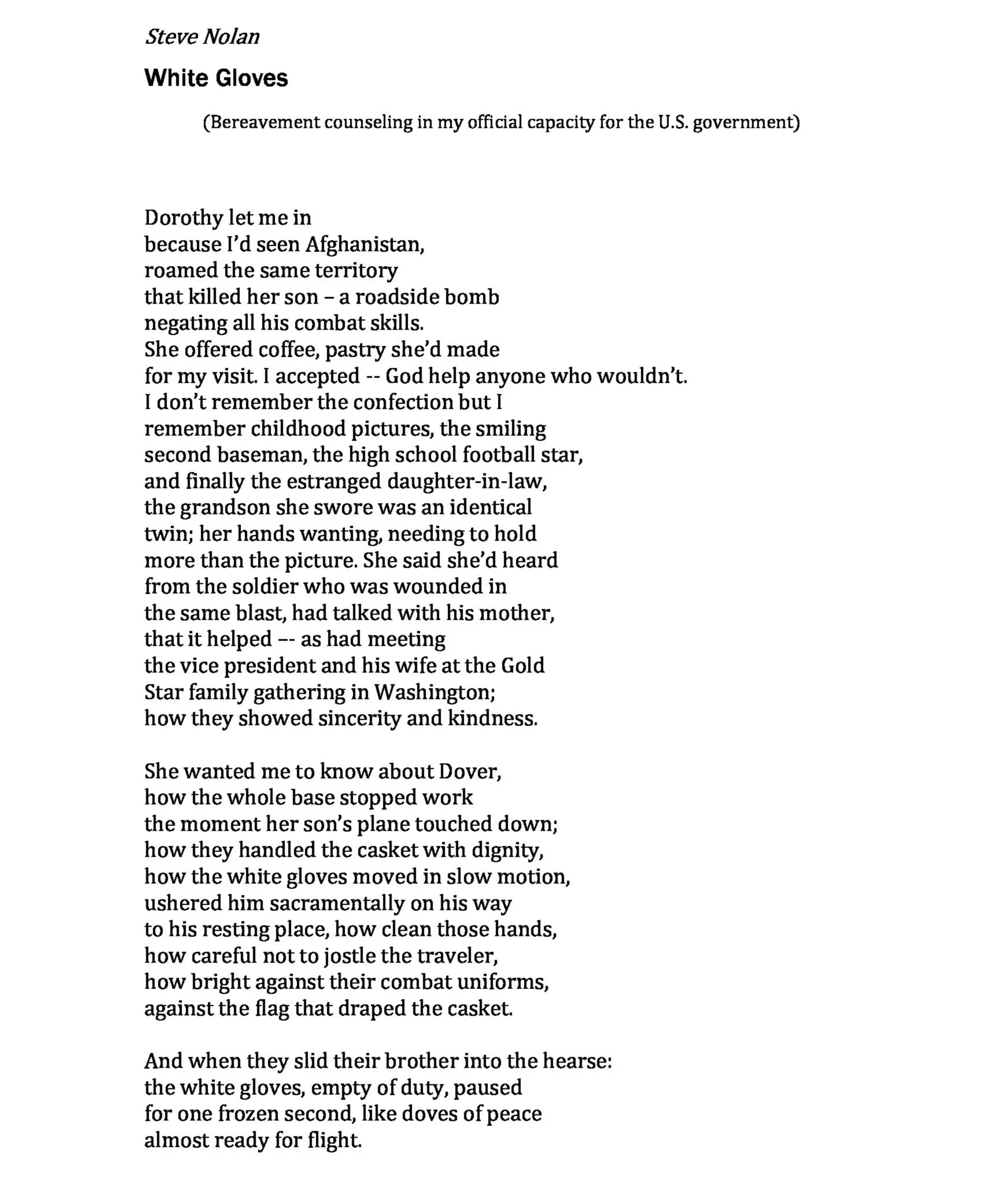Here is what final judge Deshawn McKinney wrote about "White Gloves":
"I most appreciate the quiet resolve of this poem. The scene is bare and unassuming, no lingering on the grief, rather snapshots of the life of her son, and a peek at what is now missing from the mother’s new world. By not vividly describing the pictures, or the home, by not intrusively delving into the new existence of the mother or probing into her son’s life, the piece places readers into the shoes of the officer sitting with her. How to offer, what to offer, when someone has suffered such a loss? It is this that the reader is able to navigate through each line, in which we are invited to listen to what matters, listen to understand.
This listening eventually turns to what the mother wants us to know, again a representation of not extracting information; we are not the ones who need something. Dover, the white gloves. The way the entire piece drilled down to a single image, which comes to represent the whole, is a powerful bit turn of synecdoche. The white gloves take on the status of the soldiers serving as pallbearers, it is the gloves carrying the casket, the gloves performing the sacrament, the gloves that offer a glimpse of possibility in the final images of the casket. It is a beautiful honoring of the fallen - the cleanliness of the gloves, the care with which the casket is handled. These are also sharp contrasts to the harshness of the IED and the sorrow of the mother; this final grace demonstrates the importance of ceremony. How honoring our fallen, offering them sacrament, not only helps usher them into the next life, but helps us be worthy of their sacrifice.
I deeply appreciate work that honors the Other. In modern society, we are more disconnected from the travails of servicemembers than at any other point in our history. Poems like this serve as powerful reminders that it matters what happens when people are sent to war, it matters what matters to the living and the dead, and it matters how we live in response."
Steve Nolan spent 30 years in the military and 25 years as a mental health professional. He has been published in many small press journals and his poetry was featured on National Public Radio, Morning Edition, in 2007, upon his return from Afghanistan. He is the author of "Go Deep," "Base Camp," and "American Carnage, An Officer's Duty to Warn." His work reflects his commitment to social justice.



